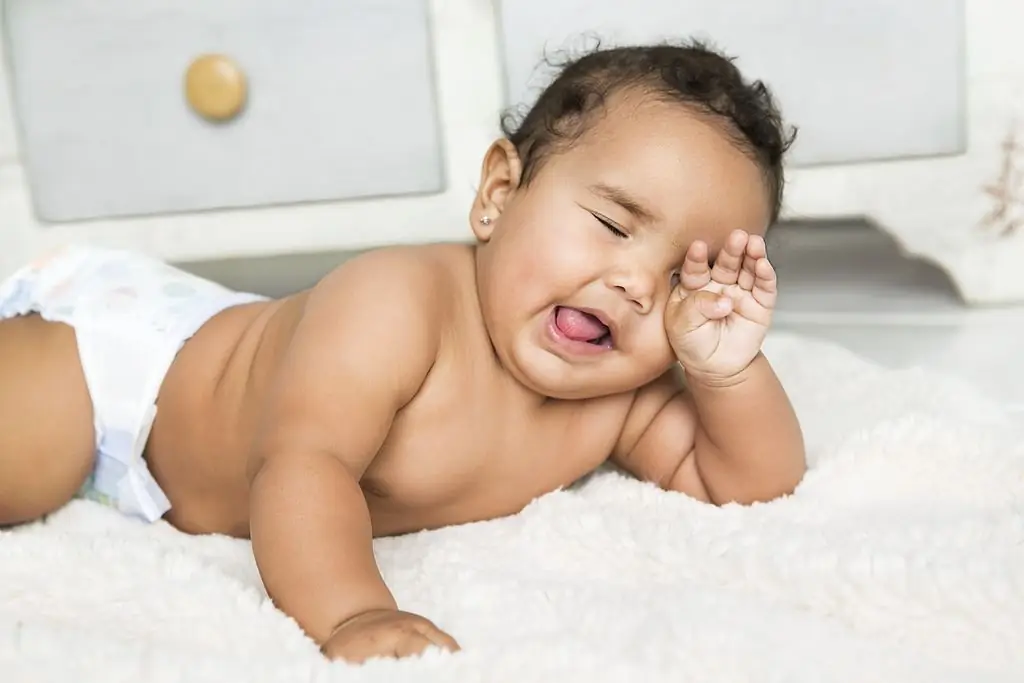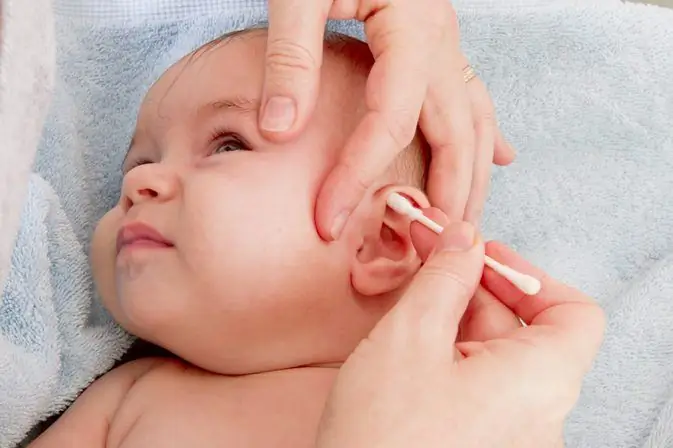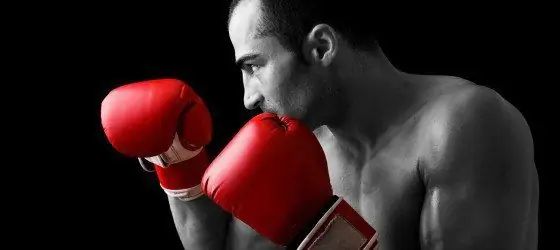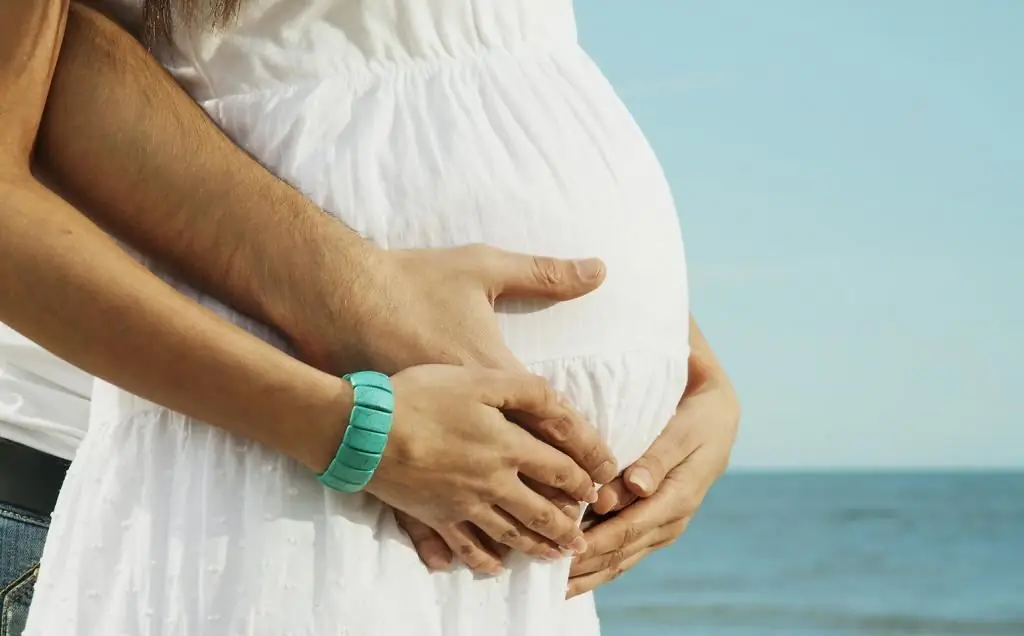2026 Author: Priscilla Miln | [email protected]. Last modified: 2025-01-22 17:55:13
Adolescence is a special age for every person, during which there is a process of change. If a teenager has pain in the heart area, which can be both physiological and pathological, it is important to monitor the symptoms and conduct a correct diagnosis and correction of this condition. Consider the main causes, features of treatment and prevention of heart disease in adolescents, on the advice of cardiologists.
Features of adolescence
In adolescence, there is a process of completing the maturation of all organs and systems in the body. This is a stressful period, and it manifests itself differently for everyone. The answer to the question of why the heart hurts in adolescents of 14 years old is, in some cases, precisely the teenage period.
Why is this happening? During this age period, metabolic processes are accelerated,actively increasing weight and height. The body of a teenager is subject to increased loads, which appear as a result of the following factors:
- vessels grow faster, the heart "does not keep up" with such accelerated development;
- actively functioning thyroid gland and pituitary gland;
- tachycardia may result from changes in the autonomic part of the nervous system;
- body weight increases, bones actively grow and strengthen, which makes the heart muscle work faster.
It is also common to notice that children between the ages of 12 and adulthood are emotionally unstable. This is due to the fact that the central nervous system completes the process of formation, therefore, during this period, the state of the cortex and subcortical structures changes.
Physiological causes

Most often, the reason that a teenager's heart hurts is precisely the physiological factor, that is, the developmental features of the body during this period of growing up. If up to 10-12 years of age, pain in the region of the heart of a teenager was not disturbed, and suddenly he began to complain of dull pains, this may be evidence of incomplete closure of the mitral valve. With a timely visit to a cardiologist, the problem is easily solved.
Adolescent girls may complain of chest pain before the onset of their menstrual cycle, which is also a normal physiological process at this age.
Pain in the heart area may also appear after an infectious disease, tonsillitis orflu, because in adolescence, the child's protective functions of the body are reduced. These symptoms may go away on their own, but most often they develop as complications. This requires diagnosis and treatment by a specialist.
Among the physiological factors, cardiologists also note the lack of carnitine, which is responsible for the transport of nutrients into the cell. This condition is easily corrected.
Pathological factors that provoke pain in the heart

If a teenager often has a heartache or painful sensations do not go away for a long time, this may indicate the presence of a disease. It can be localized both in the heart and in other organs.
Cardiologists identify the following pathological causes of pain in the heart area:
- neurocircular dystonia - disturbances in the functioning of the nervous and endocrine systems affect the functionality of blood vessels and the heart;
- disturbances in the circulatory system, especially in those arteries that supply blood to the heart muscle;
- heart defects;
- changes in the heart muscle, which may be the result of an infection;
- curvature of the spine, when sensitive fibers of the roots of the spinal cord are infringed or inflamed;
- neuralgia, neuroses;
- disturbances in the digestive tract (gastritis, duodenitis).
Sometimes it is also possible to have both a physiological and a pathological cause in the body, which can provoke pain.
Symptomatics
In order to find out why a teenager's heart hurts, cardiologists first examine the symptoms. It can be different depending on the cause of the development of painful sensations and the condition of the teenager.
Cardiologists identify the following main symptoms:
- stabbing and periodic pain in the region of the heart, which is not accompanied by pathology, but the child is emotionally unstable (in this case, the cardiologist will advise to reduce physical activity and the pain will go away on its own);
- discomfort or squeezing pain - this may indicate the development of ischemia, perhaps even congenital pathologies;
- pain in the heart, swelling of the lower extremities, shortness of breath, cyanosis of the skin - a possible presence of heart disease;
- if the heart starts to hurt after eating, then the problem lies precisely in the digestive tract.
When should you see a doctor?

If your heart hurts in adolescence, do not jump to conclusions. Some parents start to panic and think about the development of a heart defect in a child. But such a diagnosis is made only by a specialist after a comprehensive examination. After all, usually such a pathology is detected in the first year of a baby's life, but there are exceptions.
In any case, when there are painful sensations in the region of the heart that periodically occur for no apparent reason, it is better to see a cardiologist. He will diagnose and prescribe the appropriate treatment.
What to do?

In order to identify the cause of why a teenager's heart hurts, a cardiologist performs a series of diagnostic procedures.
What to do with pain in the heart?
- To begin with, it is worth identifying whether the teenager is at risk, that is, whether he had a history of cardiac pathology. This category includes children who often have a sore throat, a cold, or they are tormented by constant headaches. Also, these are adolescents who are overweight or, conversely, underweight, or those who are growing rapidly.
- It is worth finding out if the teenager has a curvature of the spine, which can also interfere with the heart.
- In a certain period, preventive examinations of specialists are prescribed. It is important not to skip them.
If a teenager has a pinched heart in the area after some stressful situation, it is worth giving sedatives, and it will pass, according to the advice of cardiologists. Also, experts insist that hormonal changes take place in the period from 10-12 years old, so pain can be associated with physiology.
But it is important to be examined by a cardiologist, since pathologies can have a latent form. For example, vegetovascular dystonia, rheumatism or viral myocarditis. They can develop both independently and as complications of previous diseases.
Diagnosis
What to do if a teenager has a heartache, only a cardiologist will say after a series of diagnostic procedures.
In case of periodic or persistent pain, both a teenager and an adult are assigned the following types of diagnostics:
- ultrasound examination of the heart area (in this case, the diagnostician determines how the heart looks visually and whether there are any changes in its shape);
- ECG - determines how well, correctly and functionally the heart works;
- measuring blood pressure (in case of high readings, it can affect the functioning of the heart muscle);
- X-ray of the thoracic and cervical spine;
- gastroduodenoscopy (disturbances in the functioning of the organs of the gastrointestinal tract can cause pain in the heart area);
- general blood and urine tests to detect other pathologies or inflammatory processes occurring in the body.
If necessary, the cardiologist may schedule a consultation with other specialists. And only on the basis of a comprehensive examination, therapy is prescribed.
Advice from a cardiologist to solve the problem

If a teenager has a heartache every day, then the cardiologist, after diagnosing and determining the diagnosis, prescribes therapy. It can be medical or surgical. If the painful sensations are periodic, then sedatives are prescribed in order to reduce the emotional burden, and recommendations are given for a he althy lifestyle.
Therapy of pain in the heart without taking drugs is to avoid stressful situations, conflicts, and improve sleep patterns. Also, physical activity should be moderate. With serious pathologies, sports are unacceptable. There is also a correctionnutrition. It should be a sparing diet, light food, rich in nutrients.
It is worth knowing that potassium, calcium and magnesium are responsible for the work of the heart, the reserves of which in the body must be constantly replenished, according to the advice of cardiologists. They help strengthen blood vessels. So, seeds (pumpkin, sunflower, sesame), red beans, lentils, buckwheat porridge, spinach and cucumbers are sources of magnesium in the body.
Potassium is found in fresh orange juice, beets, bananas, oatmeal, dried apricots and gourds. Calcium in soybeans, poppy seeds, sesame seeds. Caffeine is eliminated from the diet, sugar and s alt intake is reduced.
If a cardiologist prescribes drug therapy, then it can be antiarrhythmic drugs that increase metabolism in the tissues of the heart and normalize electrolyte balance.
Prevention of heart disease

In order not to wonder why a teenager's heart hurts, you should know and resort to preventive measures, on the advice of cardiologists.
- When the first pains in the heart area of an indefinite nature appear, it is worth being examined by a cardiologist. In the early stages, disorders are easily treatable.
- Cold diseases are treated under the supervision of a doctor to avoid negative consequences in the form of complications on the heart muscle.
- Children who are overweight or underweight are at risk.
- A normal emotional state and a warm atmosphere in the family are the key to a child's he alth.
- Even children with pathologies should moderatelyengage in physical activity. Otherwise, the muscles may atrophy.
- The diet is the maximum of useful substances that the child receives, which he needs for normal development.
How to protect yourself from heart attacks?
In order not to wonder why a teenager's heart sometimes hurts or he suffers from rheumatic attacks, it is worth monitoring changes in the heart muscle. Consultation with a doctor and courses of treatment will help to minimize such attacks and the possible development of irreversible consequences.
It's also worth knowing that lack of vitamins or lack of sugar can have a bad effect on the work of the heart muscle.
In most cases, pain in the region of the heart in adolescents 13-15 years old is easily treatable. It is important for parents to be attentive to children and pay attention to the slightest changes in well-being.
Conclusion

Why teenage hearts hurt is the age-old question that torments many parents. Cardiologists advise seeking advice when the first pains appear, since pathologies and abnormalities in the work of the heart muscle can be avoided. As a preventive measure, experts focus on a normal emotional state, regular physical activity and proper and wholesome nutrition.
Recommended:
Why are teenagers skinny? Compliance with height, weight and age in adolescents. He althy lifestyle for teenagers

Often, caring parents worry about their children losing weight as they age. Skinny teenagers make adults worry, to believe that they have some kind of he alth problem. In fact, this statement is not always true. There are many reasons that can lead to weight loss. It is necessary to familiarize yourself with at least some of them in order to control the situation and prevent the development of any complications
Why does a child sleep poorly at night - possible causes and solutions to the problem

From the first days after the birth of a child, parents face many problems. Restless behavior, poor nutrition, unnatural lethargy of a baby at a particular age - all this is a serious reason for excitement. Bad sleep is no exception. Therefore, you need to find out why the child does not sleep well at night
Redness behind the ear in a child: description of symptoms, causes, possible diseases, consultation of doctors and ways to solve the problem

In a child, redness behind the ear can occur at any age, but this happens especially often with babies under one year old. There are many reasons for this condition - from banal oversight and insufficient care to extremely serious diseases. Today we will try to understand the most common factors that provoke the appearance of redness behind the ear in a child, and also find out which doctor you need to go to with this problem
Mugs and sections for teenagers in Moscow and St. Petersburg. Methods for involving teenagers in circles and sections

In megacities such as Moscow or St. Petersburg, there is a huge variety of sports sections and clubs for teenagers. Undoubtedly, it is very good. Many adults are thinking about how to involve teenagers in circles and sections. After all, we understand how important it is to protect a teenager from the harmful influence of the street and help him maintain he alth for many years
Fetal heart rate: the norm for weeks, methods of control. When does the fetus's heart begin to beat?

What could be better for a woman who is in a "special position" than to hear the fetal heartbeat? You can describe these sounds with a thousand words. But, as one well-known saying goes, it is better to hear once. Meanwhile, by heartbeat, doctors assess the condition of the child in the womb, which makes it possible to identify many deviations in the development of the cardiovascular system. At least for this reason, it is worth undergoing routine examinations throughout pregnancy

